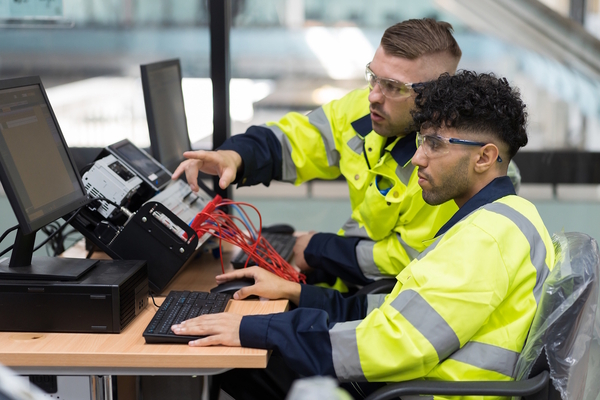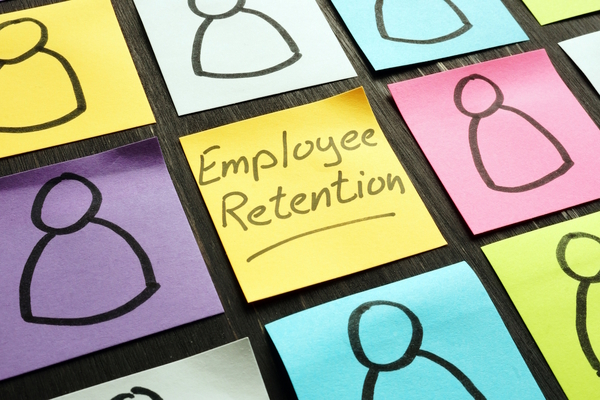The benefits of online work experience

Sam Hyams at Springpod explains how online work experience can prepare young people for the workplace
The gap between education and employment remains a persistent challenge, with employers frequently citing a lack of workplace readiness among new graduates. In fact, 73% of employers struggle with skills shortages.
Young people are currently underserved by the education system and thrust into the world of work feeling inadequately prepared—71% don’t receive any work experience while in secondary school. This results in employers struggling to find the best talent for their organisations, and millions of young people becoming economically inactive, with many more unable to pursue their dream careers.
The current undersupply of meaningful work experience, coupled with an unequal distribution of available opportunities, exacerbates this issue. Traditional work experience opportunities, while valuable, are inherently limited. They’re not scalable, flexible or accessible enough. However, online work experience is emerging as a transformative solution.
Broadening access benefits everybody
Traditional placements require students to be physically present, which can be a barrier for those from rural and coastal communities and for families that would struggle to afford transport. Online work experience eliminates geographical and financial barriers, levelling the playing field for all students, benefitting individuals and the economy. Just four touchpoints with an employer can reduce a young person’s chance of becoming NEET (Not in Education, Employment, or Training) by 86%.
Parents’ professional networks play a significant role in young people “getting a foot in the door” as can their home postcode. Industries like finance are difficult for those in rural areas to access and a career in the agricultural sector won’t be on the radar for students in city centres - even if it would suit them. Young talent is spread far and wide but the access to opportunities are unequally distributed.
‘I wish I had this when I was at school’
Innovative organisations are using virtual work experience to transform their social impact and early careers strategies - many employers lament that virtual work experience did not exist when they were making career decisions. It benefits students by providing a flexible, interactive, and engaging platform to gain insights into various industries. They can participate in real-world projects, interact with professionals, and receive feedback, all from their homes, in school, at the library or any location they choose, in their own time.
For employers, online work experience programmes offer a streamlined way to engage with potential future employees. Companies can showcase their workplace culture, values, and career opportunities to a broader and more diverse audience. Early engagement helps to identify and nurture prospective employees, which leads to a more prepared and motivated talent pool.
Organisations can also scale their social impact by supporting students in underserved areas to gain the skills they need to progress, helping them to become more socially mobile.
Online work experience programmes are inherently scalable and cost-effective. Traditional work placements are limited by physical space, the number of available mentors, and logistical constraints.
In contrast, digital platforms can accommodate a larger number of participants simultaneously - routinely attracting cohorts several orders of magnitude larger than otherwise possible. Employers can save on expenses related to office space, equipment and employee time typically associated with hosting interns. For students, the elimination of travel and accommodation costs makes work experience more affordable and accessible.
Measuring success
Leading companies including Siemens, Vodafone, Amazon and many more have developed digital work experience programmes that focus on both hard skills such as engineering techniques or accountancy best practice and soft skills such as problem-solving, teamwork and project management.
Success stories from these collaborations underscore the impact of digital work experience. Take Louis for example. His work experience with Airbus unleashed his interest in aerospace engineering, helping him to make informed decisions about his future.
Through virtual work experience, Airbus has seen results that traditional placements simply couldn’t rival. Tens of thousands of students enrolled onto the programme in the past few years. In a sample analysis of 300 student destinations, 10% went on to be hired by Airbus and the remainder went on to higher education, apprenticeships and other jobs.
This level of insight is unique to online work experience as it is possible to track students’ onward journeys and behaviour at scale. These insights can also shape the way social mobility is measured, discussed and improved.
Looking ahead
Of course, virtual work experience is not a silver bullet. In-person experiences are valuable for students and employers alike. Some elements of manual jobs just can’t be replicated in an online environment and there’s no substitute for learning to speak in front of a room full of people.
Virtual work experience is not a replacement for in-person experience, rather a complementary preparatory activity. It represents a revolutionary shift in how we prepare the next generation for the workforce.
By leveraging technology to bridge the gap between education and industry, we can offer unprecedented access to career insights and skill development opportunities. This approach not only democratises work experience but also equips future generations with the digital literacy essential for the modern workplace.
By embracing this model, we can ensure that every student is equipped to thrive in an ever-evolving job market, driving both personal and societal growth.
Sam Hyams is CEO of virtual work experience platform, Springpod
Main image courtesy of iStockPhoto.com and Pekic

Business Reporter Team
Most Viewed
Winston House, 3rd Floor, Units 306-309, 2-4 Dollis Park, London, N3 1HF
23-29 Hendon Lane, London, N3 1RT
020 8349 4363
© 2025, Lyonsdown Limited. Business Reporter® is a registered trademark of Lyonsdown Ltd. VAT registration number: 830519543





